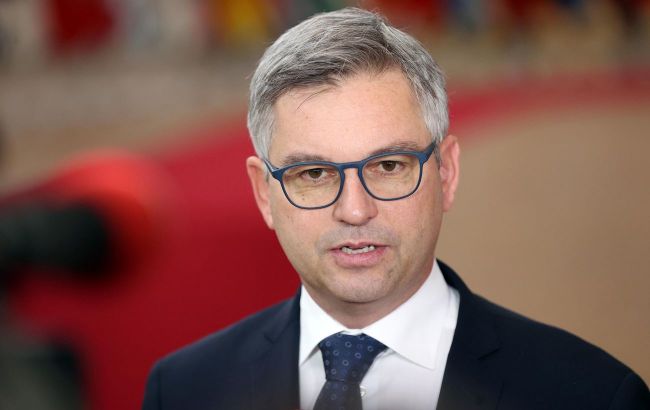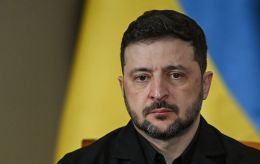EU eyes deal with Libyans to curb Putin's reach
 Photo: EU Migration Commissioner, Magnus Brunner (Getty Images)
Photo: EU Migration Commissioner, Magnus Brunner (Getty Images)
The EU should remain open to negotiations with Libyan dictator Khalifa Haftar to prevent Russia from using migration as a tool of hybrid influence, reports Politico.
According to the EU Migration Commissioner, Magnus Brunner, the Kremlin's influence on Libya is growing, and this is a matter of serious concern in the EU.
The comments were made after the diplomatic scandal in Benghazi, where Haftar expelled the European delegation, including Brunner.
The reason was the diplomats' refusal to be photographed with his ministers, which the Libyan side took as a sign of non-recognition of the government.
Nevertheless, the EU intends to resume contacts.
According to Brunner, technical channels of communication with Libyan structures controlled by Haftar "work very well."
He emphasized that negotiations with the dictator are "urgently necessary" to curb migration pressure.
Migrant flows increase
Italy and Greece have already reported an increase in the flow of refugees from North Africa.
Although the total number of illegal border crossings to the EU decreased by 20% in the first half of 2025, migration pressure through the Central Mediterranean route has increased, accounting for 39% of all illegal arrivals.
Hybrid threat
The EU suspects that Russian leader Vladimir Putin may use Libya as another channel to destabilize Europe - similar to the migration pressure on Poland and Lithuania through Belarus.
Brussels believes this is part of Russia's hybrid warfare, which includes disinformation, political influence, and the use of migrants.
In this regard, Brunner called for combining migration negotiations with Libya with other issues, such as the country's development and visa facilitation.
At the same time, Haftar remains a figure not recognized by the majority of the international community.
He controls eastern Libya as the commander of the Libyan National Army and maintains close ties with the Kremlin.
Europe is facing a political dilemma: on the one hand, the growing need to control migration flows, and on the other hand, the risk of legitimizing an authoritarian government accused of human rights violations.
It is expected that Libya will be among the key issues during the informal summit of EU interior ministers in Copenhagen this week.
Last year, Russian cargo planes were delivering air defense equipment, including radars for S-400 and S-300 interceptor systems, from Syria to bases in eastern Libya.
The bases were controlled by the Kremlin's ally, the commander-in-chief of the Libyan National Army, Khalifa Haftar.

